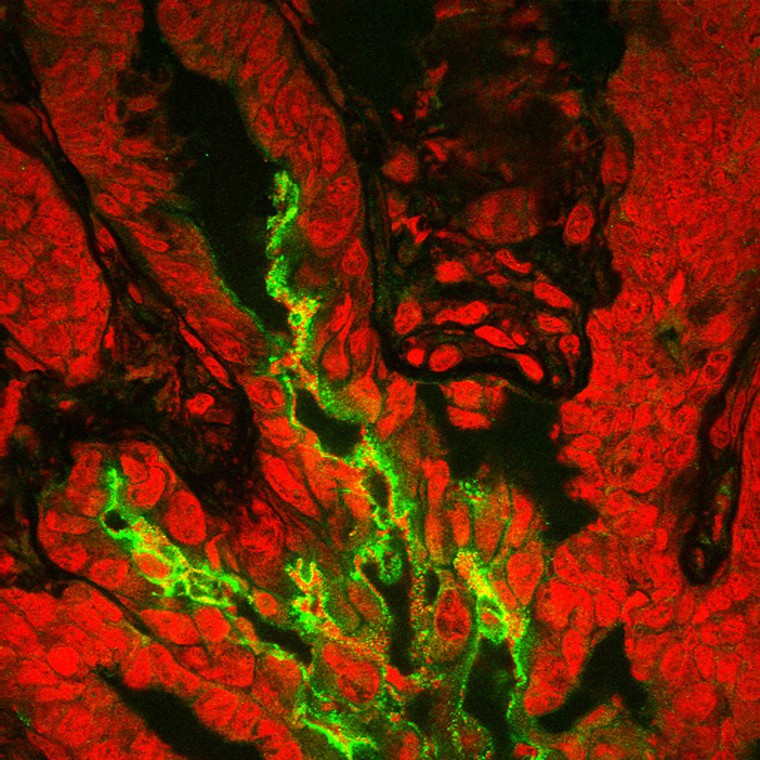Pioneering prebiotics: Fuelling good gut bacteria, and its surprising array of benefits
Researchers at the University of Reading are leading the charge to improve our gut health. Gastrointestinal disorders such as Inflammatory Bowel Disease and Irritable Bowel Syndrome are common and rising, and some experts believe a lack of positive bacteria in the gut are partly to blame. These microbes also help us fight off infection, and are implicated in other processes including sleep and brain function. But they need a healthy gut-environment in which to thrive.
Pioneers, prebiotics, probiotics, and products
In 1995, Glenn Gibson and Marcel Roberfroid invented the concept of ‘prebiotics’. Since then, Glenn – now Professor of Food Microbiology at University of Reading – has pioneered the development of evidence-based prebiotic products.
Professor Gibson and the team at Reading wanted to develop a prebiotic that beneficial gut bacteria could most readily use, so they harnessed the very tools used by these bacteria in nature. Using enzymes from a strain of Bifidobacterium bifidum, they processed lactose into prebiotic carbohydrates called galactooligosaccharides. The idea was that these bacterial-origin prebiotics would be the optimum fuel for good gut microbes.
Indeed, in a trial of healthy volunteers, the prebiotic product markedly increased good gut bacteria compared to prebiotics manufactured using commercially-available enzymes (which often come from yeast).
Health benefits in clinical trials
The research group has since reported an impressive range of positive effects in trials of the product:
- Markers of immune system function improved in elderly people
- Symptoms of IBS reduce in a trial of sufferers
- World travellers cut their risk of diarrhoea
- Markers of the metabolic syndrome improved in overweight adults
Taking discovery to market
In 2003 the prebiotic, Bimuno, was commercialised by the biotechnology company, Clasado – now an enterprise with around 50 employees and a cross-continental presence. Bimuno was used by Team GB to help avoid tummy upsets in Rio in 2016, and is recommended to prevent travellers’ diarrhoea by nutritionists working with international sporting stars. In the USA Bimuno is included as a branded ingredient in several supplements and nutraceuticals.
The customer testimonials impress, for instance:
“Bimuno powder has completely changed my life! … I now no longer have ‘bloating’ and abdominal discomfort, which worsened as the day went on. It’s not until something like that disappears that you realise how bad it had been!” Liz Abbott – reviewer on Trustpilot
“Amazing product, helped with stomach pains, sleep, energy and regularity.” Catrina Dakin – reviewer on Trustpilot
As our understanding of gut microbes develops, Professor Gibson believes that the role of prebiotics in wellness will increase. He is now investigating their potential impacts on cholesterol control, obesity and gut-brain interactions, including autism.
Fast facts
- Poor diet, stress, age and overuse of antibiotics deplete the beneficial microbes in our digestive system, with a variety of knock-on effects for our wellbeing
- Prebiotics are fuels for the good bacteria that are inside us, allowing them to grow and multiply. Prebiotics are unaffected by heat or the ravages of passing through our bodies, whereas probiotics (products that actually contain good bacteria) can be
- The product Bimuno is thriving in the growing prebiotic market, already estimated to be worth $3 billion worldwide
Further information
- Read Professor Gibson’s staff profile to find out more about his research
- Visit the Bimuno website
- Gibson GR, Roberfroid MB (Jun 1995). Dietary modulation of the human colonic microbiota: introducing the concept of prebiotics. Jouranl of Nutrition, 125 (6): pp. 1401–1412. PMID 7782892.
- Depeint, F., Tzortzis, G., Vulevic, J., I’Anson, K. and Gibson, G. R. (2008) Prebiotic evaluation of a novel galactooligosaccharide mixture produced by the enzymatic activity of Bifidobacterium bifidum NCIMB 41171, in healthy humans: a randomized, double-blind, crossover, placebo-controlled intervention study. American Journal of Clinical Nutrition, 87 (3). pp. 785-791. ISSN 0002-9165
- Vulevic, J., Drakoularakou, A., Yaqoob, P., Tzortzis, G. and Gibson, G. R. (2008) Modulation of the fecal microflora profile and immune function by a novel trans-galactooligosaccharide mixture (B-GOS) in healthy elderly volunteers. American Journal of Clinical Nutrition , 88 (5). pp. 1438-1446. ISSN 0002-9165
- Silk, D.B.A., Davis, A., Vulevic, J., Tzortzis, G. and Gibson, G.R. (2009) Clinical trial: the effects of a trans-galactooligosaccharide prebiotic on faecal microbiota and symptoms in irritable bowel syndrome. Alimentary Pharmacology & Therapeutics, 29 (5). pp. 508-518. ISSN 0269-2813 doi: https://doi.org/10.1111/j.1365-2036.2008.03911.x
- Drakoularakou, A., Tzortzis, G., Rastall, R. A. and Gibson, G. R. (2010) A double-blind, placebo-controlled, randomized human study assessing the capacity of a novel galacto-oligosaccharide mixture in reducing travellers’ diarrhoea. European Journal of Clinical Nutrition, 64. pp. 146-152. ISSN 1476-5640 doi: https://doi.org/10.1038/ejcn.2009.120
- Vulevic, J., Juric, A., Tzortzis, G. and Gibson, G. R. (2013) A mixture of trans-galactooligosaccharides reduces markers of metabolic syndrome and modulates the fecal microbiota and immune function of overweight adults. Journal of Nutrition, 143 (3). pp. 324-331. ISSN 1541-6100 doi: https://doi.org/10.3945/jn.112.166132
- Grimaldi, R., Swann, J. R., Vulevic, J., Gibson, G. R. and Costabile, A. (2016) Fermentation properties and potential prebiotic activity of Bimuno® galacto-oligosaccharide (65 % galacto-oligosaccharide content) on in vitro gut microbiota parameters. British Journal of Nutrition, 116 (3). pp. 480-486. ISSN 0007-1145 doi: https://doi.org/10.1017/S0007114516002269
- Grimaldi, R., Cela, D., Swann, J. R., Vulevic, J., Gibson, G. R., Tzortzis, G. and Costabile, A. (2017) In vitro fermentation of B-GOS: impact on faecal bacterial populations and metabolic activity in autistic and non-autistic children. FEMS Microbiology Ecology, 93 (2). fiw233. ISSN 1574-6941 doi: https://doi.org/10.1093/femsec/fiw233

